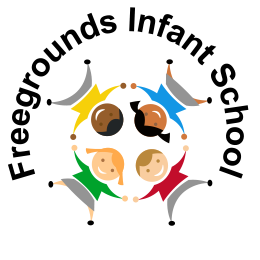Provision - Teaching and Learning Support
The four broad areas of SEND need are:
- Communication and Interaction
- Cognition and Learning
- Social, Emotional and Mental Health difficulties
- Sensory and/or Physical needs
Social, Emotional and Mental Health
Children and young people experiencing social, emotional and mental health difficulties may be:
- withdrawn or isolated
- hyperactive and lack concentration
- immature in relation to social skills
- displaying behaviour that challenges which could be arising from other complex special needs
This could mean mental health difficulties such as anxiety or depression or they could be self-harming, substance misuse, eating disorders or physical symptoms that are medically unexplained.
They may have disorders such as attention deficit disorder (ADD), attention deficit hyperactive disorder (ADHD) or attachment disorder and may be frustrated and struggle with school routines and relationships.
Cognition and Learning
Cognition and learning difficulties can affect children’s ability to learn and do well at school. Specific learning difficulties (SpLD) include a range of conditions such as dyslexia, dyscalculia and dyspraxia.
Children who have needs in more than one of these areas are considered to have ‘complex needs’. A child may also be described as having ‘mild’ or ‘severe’ learning difficulties depending on the degree of need and the impact this has on their lives.
Support for learning difficulties may be needed when children and young people learn at a slower pace than their peers.
Learning difficulties cover a wide range of needs. Pupils with moderate learning difficulties (MLD) may need extra support in some areas of the curriculum.
Those with severe learning difficulties (SLD) are likely to need support in all areas of the curriculum and have associated difficulties with mobility and communication.
Pupils with profound and multiple learning difficulties (PMLD), are likely to have severe and complex learning difficulties as well as a physical disability or sensory impairment.
Communication and Interaction
Communication and interaction conditions may include children and young people who have speech, language and communication needs and/or autism.
They may:
- have difficulty in communicating with others; they may have difficulty saying what they want to or understanding what is being said to them
- be delayed in using language and shy away from talking
Sensory and/or Physical needs
Children with sensory or physical needs may have a disability, such as;
- physical disability
- vision impairment
- hearing impairment
- multi-sensory impairment (both hearing and vision difficulties)
- dyspraxia
They may need specialist equipment to access learning and other opportunities available to their peers.
They may also need support to help with daily tasks such as eating or travelling. This is sometimes referred to as habilitation support.
How we evaluate the effectiveness of provision
The Inclusion manager, in partnership with the Headteacher and Governing Body, have the following key responsibilities:-
- overseeing the day-to-day operation of the school’s SEND policy
- co-ordinating provision for children with special educational needs by liaising with, and advising, fellow teachers
- managing classroom assistants in the teaching of pupils with special educational needs
- overseeing the records of all children with special educational needs
- liaising with parents of children with special educational needs
- contributing to the in-service training of staff
- liaising with external agencies, including the support of the LA and Educational Psychology Services, Health and Social Services and voluntary bodies
- ensuring the smooth transition of pupils with additional educational needs to their new class/school or learning environment
- ensuring all relevant records are transferred to the next Teacher/SENDCo
- monitoring and reviewing progress of pupils with additional educational needs
- ensuring that barriers to learning are removed and all pupils can access a full curriculum
- monitoring and reviewing intervention programs for effectiveness
- keeping up to date with current SEN training and Government initiatives.
ELSA Support
At Freegrounds Infants we are lucky to have a fantastic ELSA (Emotional Literacy Support Assistant) Mrs Humphries. She has had special training from educational psychologists to support the emotional development of children and young people in school. ELSAs have regular professional supervision from educational psychologists to help them in their work. Mrs Humphries works part time in the 'Nurture Room' where she provides the time and space for pupils to think about their personal circumstances and how they manage them.
Mrs Humphries works with the children to;
- Develop coping strategies and talk about difficulties.
- Interact more successfully with others.
- Develop greater self-awareness manage school better and feel better about themselves.
- Pupils with an ELSA feel they have been listened to and supported.
Sensory Circuits
At Freegrounds Infants we run 'Sensory Circuits' at the start of the school day. The aim of a sensory circuit is to help prepare children to be able to engage actively with the school day. A sensory circuit is a series of activities designed to alert, organise and calm the children before they start their learning. Sensory circuits are a great way to both energise and settle children so they can focus and engage better in the classroom. Many children can benefit from attending a sensory circuit, even for a short period of time. The activities can also be utilised at different times of the day as part of a sensory diet to help the child regulate.
